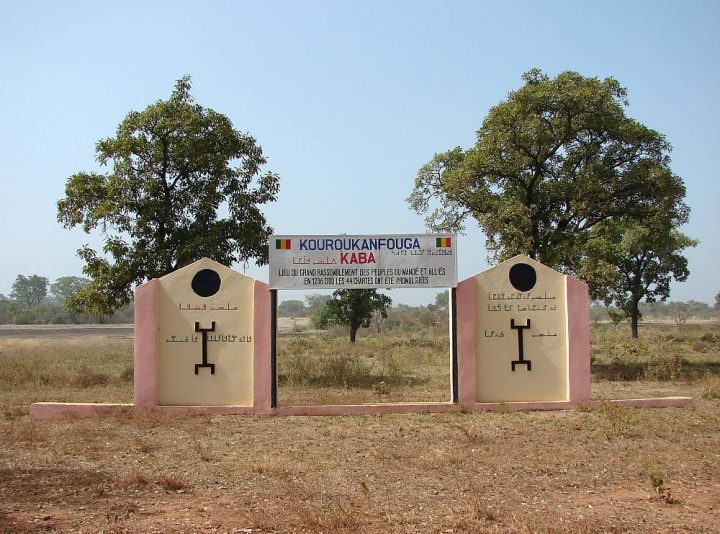The world’s oldest constitution was written in Africa by King Sundiata Keita, who lived from 1190 to 1255. His father, Narhe Magan, accepted marriage to a hunchbacked woman named Sologon Konde to fulfill a prophesy that foresaw the birth of a great man from their union. The child was born hunchbacked and handicapped. After the father’s death, a half-brother, Sumaouru Kante, took power and Sundiata and his mother went into exile in the village of Nema, in the small kingdom of Manden, made up of four families – the Sarakole, Soso, Traore and Manden families.
Sundiata overcame his handicap and became a great warrior. After a war with his half-brother, he proclaimed himself Emperor of Manden and founded the powerful Empire of Mali, which ruled a large part of Western Africa for centuries. However, after his victory, he grew weary of such violence and, thanks to the advice of a group of wise men, in 1236 he decided to create a body of laws, called the Manden Constitution, proclaimed at Kourougan Fuka. It was later passed down as oral tradition by the Malinké, a group of hunters and by the Griot, African minstrels. Sundiata died under mysterious circumstances in 1255, but he left his people a heritage of highly advanced ideas for time, many of which are still revolutionary today.
Western historians did not want to recognize the Manden Constitution, but in the 1970s Malian historian and ethnographer Yousouf Tata Cisse transcribed it. In 2009, UNESCO added it to the Intangible Human Cultural Heritage list.
The Constitution consists of 44 articles and is subdivided into 7 chapters. It proclaims principals such as societal peace through diversity, the inviolability of the human being, the importance of education, the integrity of the homeland, the right to food, the abolition of slavery for all races, the freedom of expression, free trade, gender equality, criminal statute of limitations, protecting the environment and equality before the law.
Here is a brief extract:
Each individual has the right to life. No life is superior to another.
Respect for others is the rule and tolerance must be the principle.
Vanity is a sign of weakness and humility is a sign of greatness. We will face difficulties together and help those who are in need.
No one shall offend women, they are our mothers. Beyond their daily work, women must share in our management.
Respect family, friendship and your neighbors.
Do not humiliate your enemy, for if you do you will be considered a coward.
The education of youth is the responsibility of the entire community. Everyone must take care of the children and scold them.
Lies that last for 40 years shall be considered as truth. There shall be no reports made for old complaints.
No one will gag their neighbor and sell him. The existence of slavery is ended today.
The spirit is free and can say what it wishes.
Divorce is legal and is granted by request of one of the two spouses under certain circumstances: madness of one of the spouses, the husband’s unfulfilled duties (procuring adequate food and means), unfulfilled martial obligations and lack of respect to in-laws.
Respect the word of honor.
There are five ways to obtain riches: buying, donating, trading, work and inheritance. Other ways are illegal. There is only one exception: stealing due to hunger is not a crime, if the thief only takes what is needed.
Forests must be preserved for the hippieness of all. Before burning down a bush, raise your head and look up at the treetops.
Domestic animals must be put in changes only temporarily, or when necessary for agriculture, and they must be freed right after harvest.
Anyone who breaks these rules will be punished.
Everyone is responsible for guaranteeing laws are followed.
Translation from Italian by Peter Luntz










